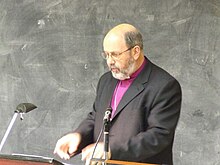(courtesy sweetclipart.com)
By Spencer D Gear
If you want to find yourself in the midst of a Christian bun fight, raise the issue of once-saved-always-saved and the Arminian vs Calvinistic views and you can guarantee a start. It may not finish.
A fellow who believes in once-saved-always-saved (eternal security) challenged a poster on a Christian forum:
Show me in scripture where God ever lost one of His own.
Now if you want, we can continue to play these games.
But it still boils down to the fact that nowhere in scripture does it show God has ever lost one of His sheep to Satan, or ever let one saint slip from His hand.
I ask that you show me, where God lost one of His saints, prove it from scripture.[1]
Was he prepared for this kind of response?
A fellow, with an excellent knowledge of NT Greek, answered the challenge with some needed but technical language, to show in Scripture where God speaks of losing his own. He wrote:
John 15:6. “If anyone does not abide in Me, he is thrown away as a branch and dries up; and they gather them, and cast them into the fire and they are burned.”
The Gospel According to John explicitly teaches that our salvation is conditional upon our abiding in Christ, and the Greek word translated ‘abide’ in English is the Greek word mene meaning to ‘abide,’ ‘remain,’ and ‘stay’ and is used in twelve of the New Testament books with these meanings. But before we go any further with this, we need to address the construction of conditional sentences in New Testament Greek.
There are the four kinds of conditional sentences found in the Greek New Testament:
1. The supposition of a fact. Example: For if the dead are not raised, not even Christ has been raised; (1 Cor. 15:16). In this kind of conditional sentence we find the conditional Greek particle ei used with the verb in the indicative mood in the protasis (the “if” clause), and either the indicative mood or the imperative mood (or the subjunctive mood in the case of a prohibition) in the apodosis (the “then” clause).
2. The supposition of a possibility. Example: If anyone is willing to do His will, he will know of the teaching, whether it is of God or whether I speak from Myself. (John 7:17). In this kind of conditional sentence we find the conditional Greek particle ean used with the verb in the subjunctive mood in the protasis, and either the indicative mood or the imperative mood (or the aorist subjunctive with ou me in the apodosis.
3 The supposition of an uncertainty. Example: who ought to have been present before you and to make accusation, if they should have anything against me. (Acts 24:19).
In this kind of conditional sentence we find the conditional Greek particle ei used with the verb in the optative mood. There are no examples in the New Testament where this kind of conditional sentence is used having both the protasis and the apodosis.
4 The supposition of something contrary to fact. Example: If God were your Father, you would love Me. (John 8:42). In this kind of conditional sentence we find the conditional Greek particle [ei] used with the verb in the protasis and the Greek particle an used with the verb in the apodosis with the indicative mood used in both the protasis and the apodosis.
With this information in mind, let’s look at the conditional sentences that we find in John 15:1-10:John 15:4. “Abide in Me, and I in you. As the branch cannot bear fruit of itself unless it abides in the vine, so neither can you unless you abide in Me.” Although it is not apparent from this English translation, this verse does include a conditional clause and we find the conditional Greek particle ean used with the verb in the subjunctive mood in the protasis. (Compare Young’s Literal Translation of the Bible, “remain in me, and I in you, as the branch is not able to bear fruit of itself, if it may not remain in the vine, so neither ye, if ye may not remain in me.”)
John 15:6. “If anyone does not abide in Me, he is thrown away as a branch and dries up; and they gather them, and cast them into the fire and they are burned.” Here we find the conditional Greek particle ean used with the verb in the subjunctive mood in the protasis and in the indicative mood in the apodosis.
John 15:7. “If you abide in Me, and My words abide in you, ask whatever you wish, and it will be done for you”. Here we find the conditional Greek particle ean used with the verb in the subjunctive mood in the protasis, and the indicative mood in the apodosis. Therefore, we have a supposition of a possibility – His disciples may or may not abide in Him. It depends upon them and their choices. If they choose to slip away – they slip away, and according Jesus, their slipping away is a possibility – and hence the warning!
John 15:10. “If you keep My commandments, you will abide in My love; just as I have kept My Father’s commandments and abide in His love.” Here we find the conditional Greek particle ean used with the verb in the subjunctive mood in the protasis and in the indicative mood in the apodosis. The significance of this is that subjunctive mood in the protasis indicates that, in the mind of the speaker (Jesus), our keeping His commandments is a supposition of a possibility. Therefore it is not a question of who keeps us from falling, but a question of whether or not we continue to obey Christ and thereby continue to abide in Him. The choice, according to these words of Jesus, is ours.
John 15:16. “You did not choose Me but I chose you, and appointed you that you would go and bear fruit, and that your fruit would remain, so that whatever you ask of the Father in My name He may give to you.” We have no conditional clauses in this verse, but the verb that we are studying (translated here “remain” rather than “abide”) is in the subjunctive mood, the mood expressing a probability rather than a certainty. It is also worth pointing out that the mood of the several other verbs in this verse, hence:
John 15:16. “You did not choose (indicative) Me but I chose (indicative) you, and appointed (indicative) you that you would go (subjunctive) and bear (subjunctive) fruit, and that your fruit would remain (subjunctive), so that whatever you ask (subjunctive) of the Father in My name He may (subjunctive) give (subjunctive) to you.”
John 15:1. “I am the true vine, and My Father is the vinedresser.
2. “Every branch in Me that does not bear fruit, He takes away; and every branch that bears fruit, He prunes it so that it may bear more fruit.
3. “You are already clean because of the word which I have spoken to you.
4. “Abide in Me, and I in you. As the branch cannot bear fruit of itself unless it abides in the vine, so neither can you unless you abide in Me.
5. “I am the vine, you are the branches; he who abides in Me and I in him, he bears much fruit, for apart from Me you can do nothing.
6. “If anyone does not abide in Me, he is thrown away as a branch and dries up; and they gather them, and cast them into the fire and they are burned.
7. “If you abide in Me, and My words abide in you, ask whatever you wish, and it will be done for you.”The word “abide” in verse 4 is in the subjunctive mood; Jesus is telling his disciple that unless they remain in him, they cannot bear fruit.
The word “abide” in verse 5 is in the imperative mood; Jesus is commanding His disciple to abide in him.
The word “abide” in verse 6 is in the subjunctive mood; Jesus is telling his disciple that if anyone does not remain in him, they are cast into the fire and are burned. This is a very stern warning in vivid language to those individuals who are in Christ that the consequence of failing to obey His command to remain in Him is to be dried up and burned like a dried up branch of a vine.
The word “abide” in verse 7 is in the subjunctive mood in both of its occurrences in this verse; Jesus is telling his disciple that if they (the you is plural) abide in Him and His words abide in them, they are to ask (imperative mood and hence a command) for whatever they wish and it will be done for them.
In these verses, the word “if” means “if,” not “since,” and the promises found in these verse, both the good and the bad, are conditional upon the disciples, individually, continuing to abide (remain) in Christ, and His words continuing to abide (remain) in them.
How do we continue to abide in Christ? Jesus answered that question for us, “If you keep My commandments, you will abide in My love; just as I have kept My Father’s commandments and abide in His love.” (v. 10).[2]
Conclusion
This poster has nailed the issue. Christian salvation is only guaranteed for those who continue to abide in Christ. Continuing faith in Jesus is a condition of continuing salvation – and thus, eternal life.
See also my articles:
- Can people lose their Christian salvation?
- Is it possible or impossible to fall away from the Christian faith?
- Conversations with a Calvinist on apostasy,
- Once Saved, Always Saved or Once Saved, Lost Again?
- Controversies: Once saved, always saved,
- Did Arminius refute eternal security?
- What does it mean to shipwreck your faith?
Based on the above evidence, decide for yourself whether the biblical evidence confirms or denies that some Christians can fall away from the faith. Also, see Carl Wieland’s, ‘Death of an apostate’ (i.e. Charles Templeton). Templeton in the 1940s was a colleague of Billy Graham in Youth for Christ.
(Courtesy Worldcat)
Michael Patton has written this sad but challenging article, ‘Billy Graham and Charles Templeton: A Sad Tale of Two Evangelists’.
I recommend the article by Roger E Olson, ‘What’s wrong with Calvinism?‘ (Patheos, March 22, 2013).
Notes
[1] Christian Forums, 16 November 2014, ‘OSASers choose to reject Jesus’ warnings about losing salvation!’, DeaconDean#152. Available at: http://www.christianforums.com/t7842244-16/#post66634768 (Accessed 16 November 2014).
[2] Ibid., PrincetonGuy#155.
Copyright © 2014 Spencer D. Gear. This document last updated at Date: 20 December 2018.











 (Catherine Booth, courtesy
(Catherine Booth, courtesy 







